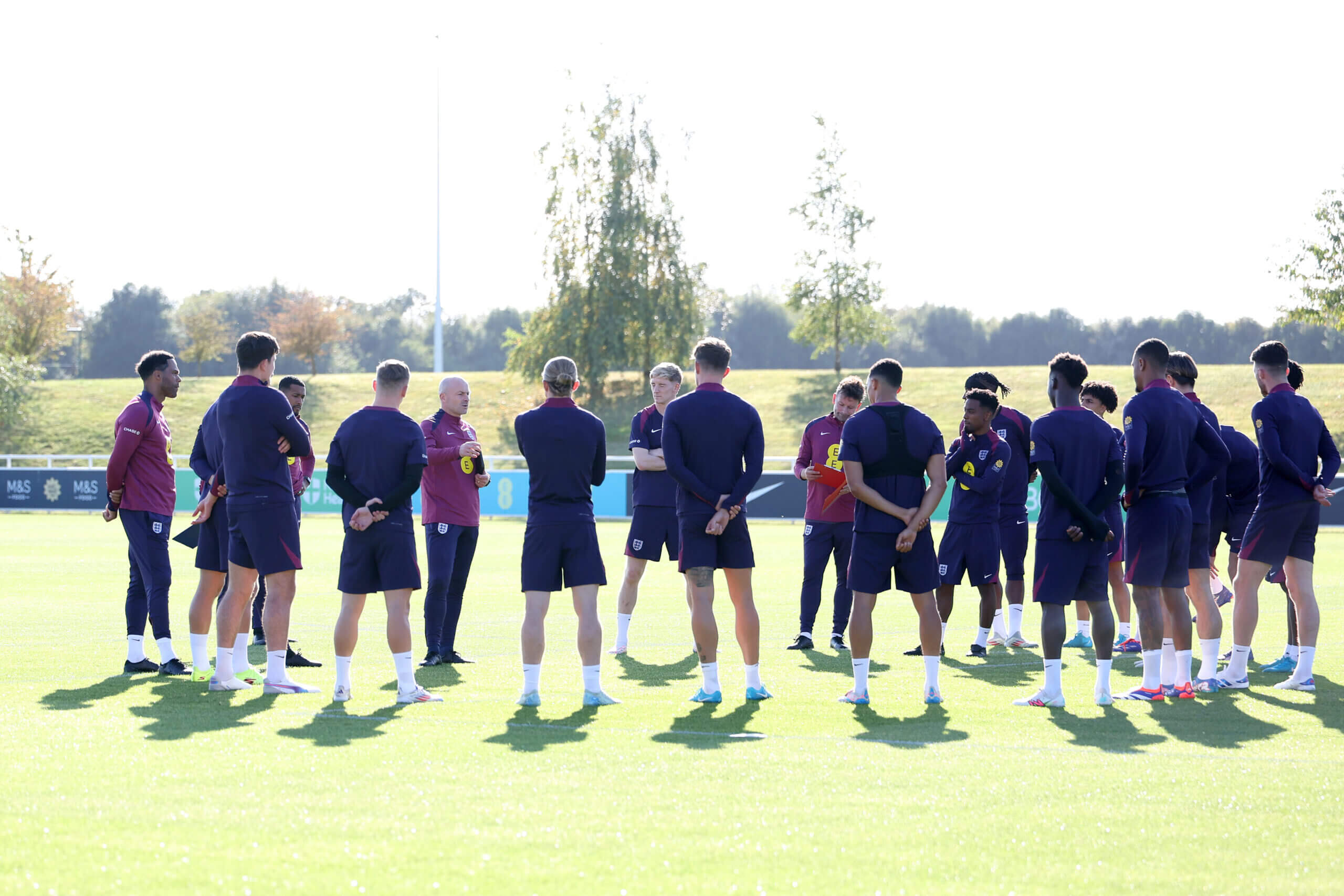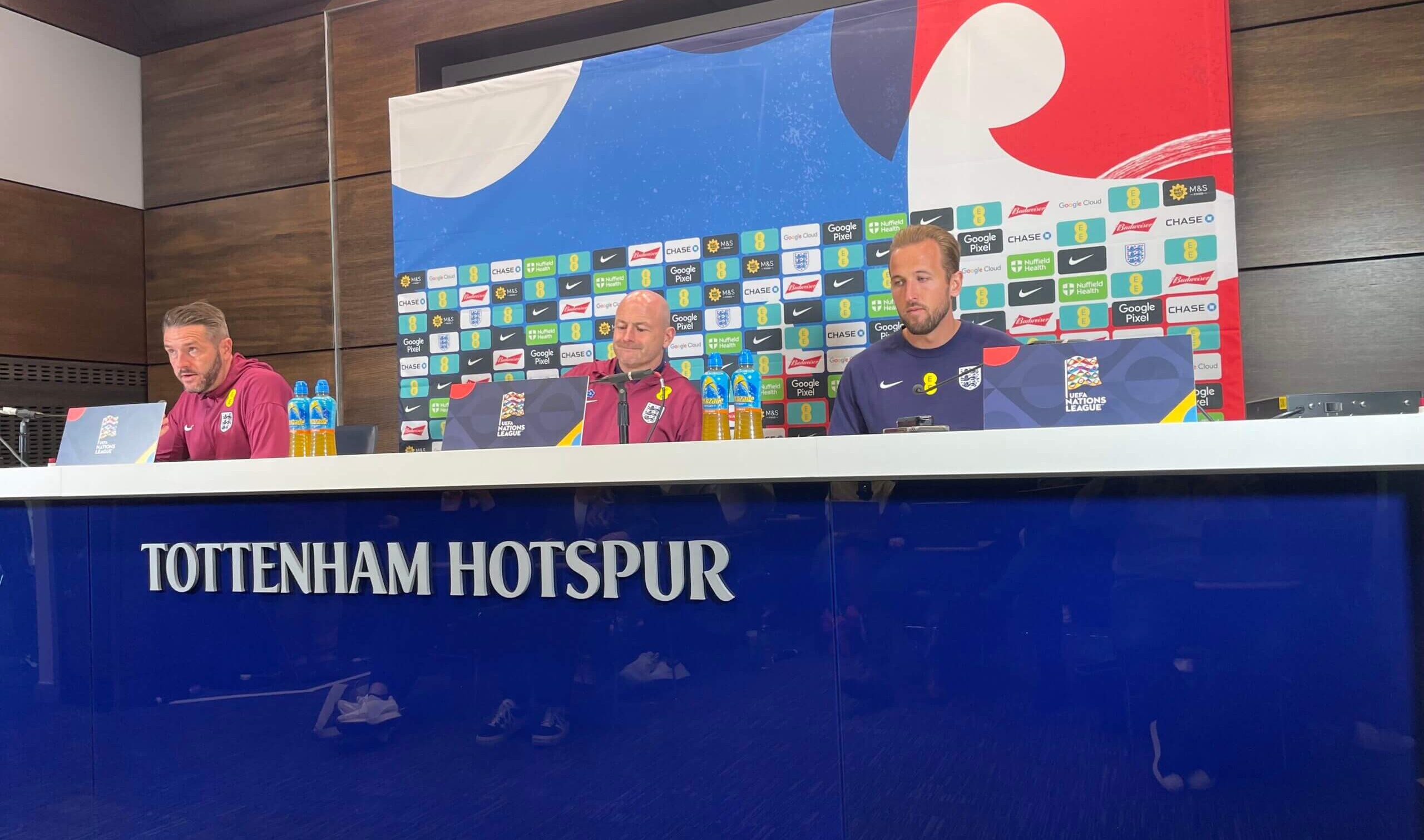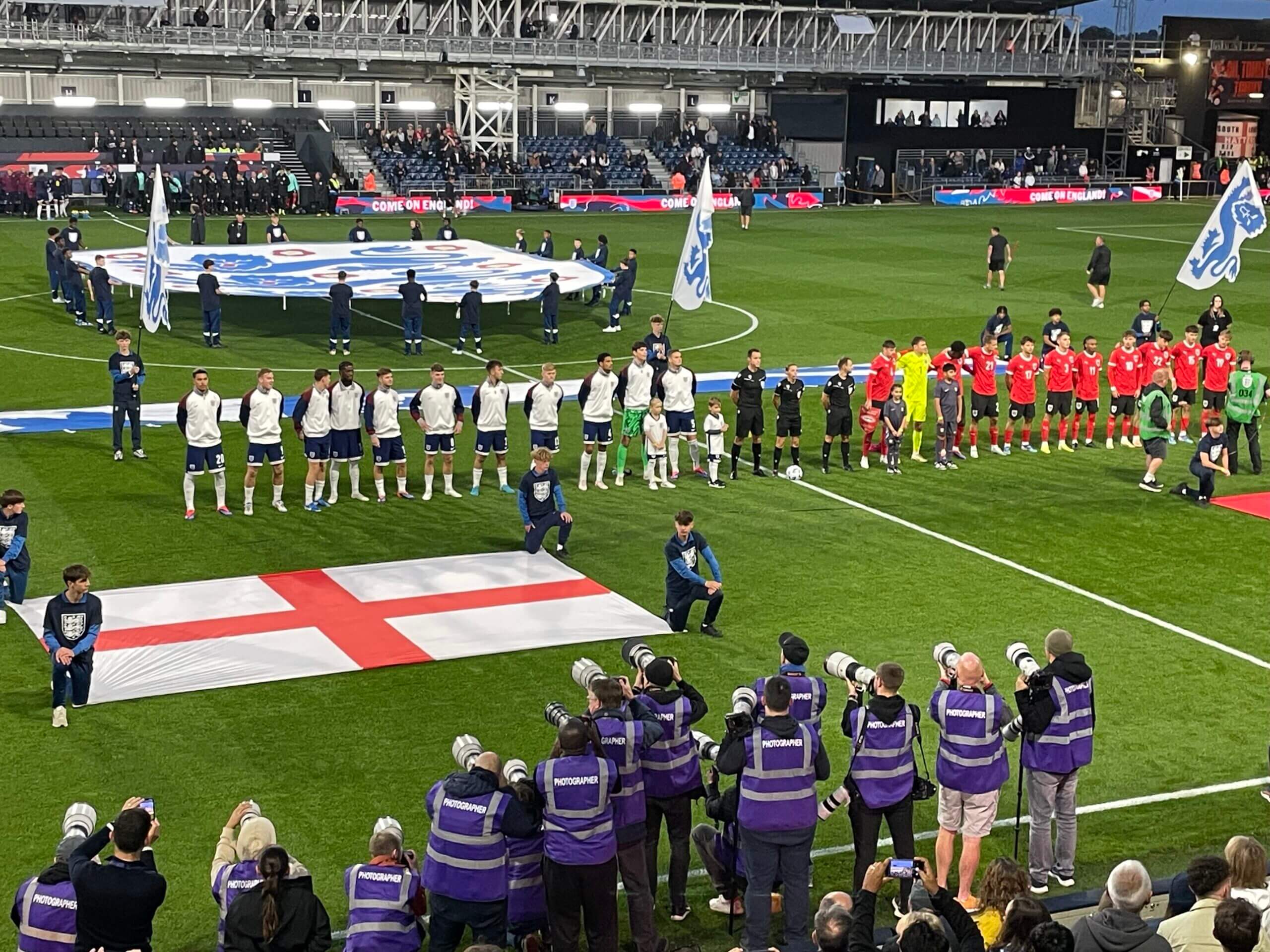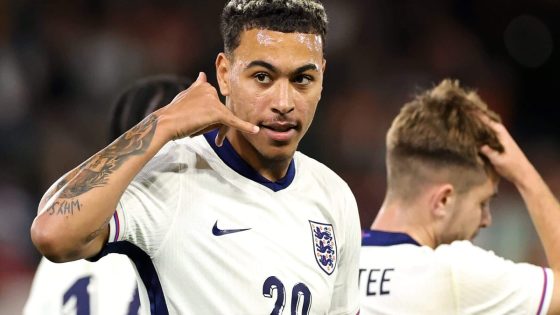“What does he gain by playing in the under-21s, Morgan Rogers? I respect that they are not calling him for the first team, but the second team? He is not a player for the second team.”
Aston Villa manager Unai Emery didn’t attempt to hide his surprise at Morgan Rogers’ inclusion in the latest England Under-21 squad during a press conference late last month.
Having lost midfielder Jacob Ramsey for a large portion of last season after the midfielder broke a metatarsal bone in his foot while away with the England Under-21s at the 2023 European Championship, Emery may well have feared the potential of Rogers suffering a similar fate this month. However, his comments could also be construed as dismissive of the value of under-21s international football.
Rogers, 22, has made a strong start to the season but has only made 19 senior appearances for Villa since joining the club from Middlesbrough in February, so surely a call-up to the senior squad would arrive a little too soon.
The Spanish coach is understandably putting his club first, as Villa have a heavy schedule on their plate, with Champions League football on the horizon. Young players like Rogers can be prone to burnout if overused, but if used correctly, the England youth system can enhance and help Rogers become an even better player for both club and country.
Ever since the FA brought in its England DNA programme in 2012, following the arrival of Dan Ashworth as technical director, that pathway has been clear and productive.
The idea, designed to utilise the first main training headquarters England has ever had at St George’s Park in the Midlands, went beyond just coaching and included how England players were treated, how they recovered, how they ate, travelled and warmed up, as well as how they played.
It was a set of principles that everyone had to agree upon in terms of culture.
Fundamentally, the programme was about bringing in the brightest young players early and treating them exactly the same throughout the process, just as if they were going to play in the senior team so that, when they eventually did reach that level, nothing was new to them about their preparation. Only the stage was bigger.

It has borne fruit. Since its inception, England have become world champions at under-17 and under-20 levels. They have been European champions at under-17s level twice, once at under-19s and finally, in 2023, they became under-21 winners, with many of that side also having won the Under-17 World Cup in India in 2017.
In that under-17s side were Marc Guehi, Phil Foden and Morgan Gibbs-White, who all started the final, while Conor Gallagher and Angel Gomes were in the squad along with Emile Smith-Rowe, Callum Hudson-Odoi and Jadon Sancho — who have all earned senior caps.
In the under-21s squad were Levi Colwill, Gibbs-White, Smith Rowe, Anthony Gordon, Cole Palmer and Gomes. Colwill, Guehi, Gordon, Gibbs-White are all in the current senior squad.
Is Rogers ready to be the next one on the conveyor belt to the senior ranks?
St George’s Park may be the main England headquarters these days but when England are on home soil at Wembley Stadium, Tottenham’s training base is their home away from home.
On this occasion, England captain Harry Kane, the country’s record goalscorer with 66 goals in 99 appearances, was previewing what would be his 100th appearance against Finland on Tuesday night in a tight and packed media room.
Kane was in a reflective mood but it doesn’t take much to remind him when it all began.
“I played in the under-17s, the under-19s, the under-20s, and the under-21s, and it was a great learning curve for me,” Kane says, “I had some great coaches and I think just playing with the best players in the country helped me develop at that age to improve and see what the level was at, because when I was starting out, I wasn’t seen to be the next big thing. I had to work extremely hard to be consistent and improve.
“I think England helped me see that just by being around some of the best players.”
Now Kane is the senior man, the one that full international England players of the future look up to.
“You’re seeing more and more of the younger teams having success, and I think that’s definitely helping the senior team because as they’re coming in, they’re pushing us,” adds the Bayern Munich striker.
“They’re making the competition stronger. They’re having those good experiences, even at youth level in tournaments; reaching finals and winning. That helps them coming into major tournaments with the senior team as well, so the future is definitely bright for us.”
It’s not just England’s players who are following a pathway. Sat to Kane’s right was Lee Carsley, the man who led England Under-21s to that European title in 2023.

Like his predecessor Gareth Southgate — who enjoyed the most successful spell as England manager since Sir Alf Ramsey led the nation to their only international prize, the 1966 World Cup — Carsley has been promoted, initially as interim, from the younger age groups to take charge of the seniors.
He is a different man to Southgate but has a similar ideology, ingrained in the FA’s DNA. He is in prime position to succeed Southgate on a full-time basis and has the advantage of having worked with most of the young players now at his disposal at senior level.
“It has had a lot of benefits, I think,” Carsley says of England’s developmental programme. “We talk about the DNA, which is the way we want to play and coach, but we should also talk about the jobs the (club) academies are doing as well, which makes our jobs a lot easier.
“The players are coming in at such a high level and the competition for places to get into squads and stay in squads; that’s where you can see that players are moving through the pathway quite smoothly.
“So when you lose a player that goes up to a higher age group, the next one comes in and it’s almost a seamless transition.”
Later that day, at Kenilworth Road, in front of a small but enthusiastic crowd of 5,294 made up of mainly youngsters who wouldn’t ordinarily get to experience international football, Aston Villa’s Rogers started for England Under-21s, now coached by Ben Futcher after Carsley’s promotion — the interim for the interim.
Just as players step up seamlessly, so can coaches, with Futcher having stepped in for Carsley after coaching under-18s and elite (men’s under-20) squad.
It is a new-look under-21s too, with Carsley taking Rico Lewis, Noni Madueke and Tino Livramento with him to the seniors. They are transitioning while attempting to qualify for the next European Championship to defend their crown, although this is a friendly against Austria.

The pathway has produced debutants James Beadle in goal and right-back Jack Hinshelwood, among others.
Rogers, who joined England’s youth setup at 14, had made only three under-21 appearances previously but made it four goals in as many caps with a brace before being replaced on the hour mark in a 4-1 victory.
He put Futcher’s side ahead from the penalty spot before confidently sweeping home with his right foot to restore England’s lead early in the second half. He could have had more as he had a couple of other excellent chances but was denied by the impressive Austrian keeper Nikolas Polster.
Rogers wasn’t head and shoulders above anyone else on the pitch — Austria’s Thierno Ballo, who scored their equaliser, was the player who caught the eye in the first half — but he certainly demonstrated his potential.
Brace in the bag, @morgz_10 😮💨 pic.twitter.com/tfQCcTSSOo
— England (@England) September 9, 2024
Rogers has been within the England pathway since the age of 14 and he appreciates that, rather than the under-21s being a ‘second team’, as Emery described it, it is a valuable stepping stone to the senior squad.
“I know the benefit of the under-21s and the big tournaments to show what I’m about,” Rogers had previously told the media in Belfast on Friday.
“I see the players in the first team now who’ve been through all the ages (age groups). He (Emery) gets why it’s a massive thing for me to represent my country. It’s a massive achievement.”
The ultimate goal, however, is to get Rogers and others to the final destination of their journey — to the senior side and replicate the trophy success at junior level on the biggest stages of all.
“There is a great depth coming through and it is our job to get the best out of a really talented pool of players,” says a delighted Futcher, who has previously said that England’s youth coaches don’t recognise their under-21 side as a ‘second team.’
“Someone asked if I was disappointed to lose players to the seniors but it is not a disappointment. It is a source of pride because that is what we are here to do: to get players playing in the senior team. There have been loads of positives.”
Not least for Rogers, with two more caps and two goals under his belt — and another step along the pathway.
(Top photo: David Rogers/Getty Images)





